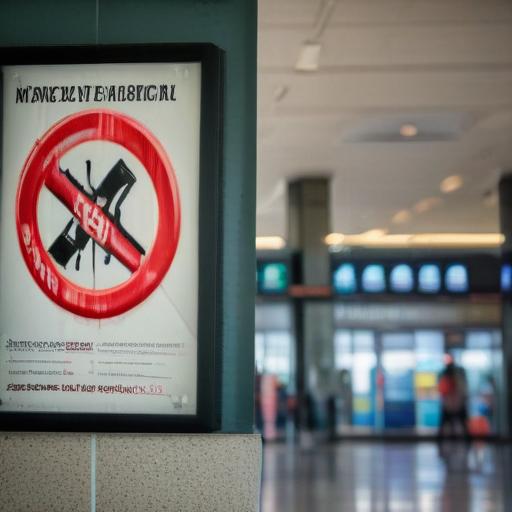A person infected with measles potentially exposed others at Phoenix Sky Harbor International Airport on June 10, 2025. Health officials from the Maricopa County Department of Public Health reported that the traveler was present in Terminal 4, specifically in Concourses C and D, between 5 p.m. and midnight, and the exposure could affect unvaccinated individuals.
Those who were in the airport during this timeframe should monitor for measles symptoms for up to 21 days, as the disease can linger in the air for two hours after the infected individual has left. This alert comes following Arizona’s initial confirmed measles cases of 2025 and a concerning national trend of increasing cases. The CDC reported 1,197 confirmed cases in 35 states by June 12, marking a significant rise compared to the previous year.
Despite achieving measles elimination in 2000, the rise in cases is alarming, attributed to declining vaccination rates linked to vaccine skepticism and a lack of education on the importance of immunizations. The Arizona Department of Health Services has a vaccination education program, but many schools opt out, leaving many parents without vital information about vaccine-preventable diseases.
Measles is known for its severe complications, including deafness and brain inflammation, making vaccination crucial. The MMR vaccine is reported to be 97% effective, providing a strong defense against infection.
Maricopa County health officials are coordinating with various agencies to inform and protect people who might have been exposed. Dr. Nick Staab, the chief medical officer, emphasized the importance of monitoring symptoms for the unvaccinated to prevent further spread of the virus.
For those unsure about their vaccination status, checking records is advised, and individuals exhibiting any measles symptoms should self-isolate and consult with healthcare providers before visiting medical facilities.
This incident serves as a sobering reminder of the importance of vaccinations not only for personal health but as a public health priority. Encouragingly, with proactive public health measures and community education, it’s possible to mitigate the spread of such infectious diseases and protect vulnerable populations.
